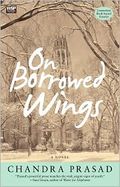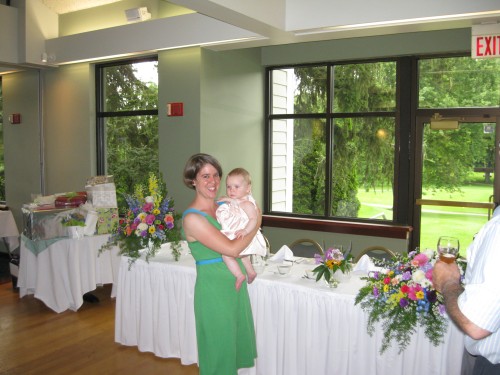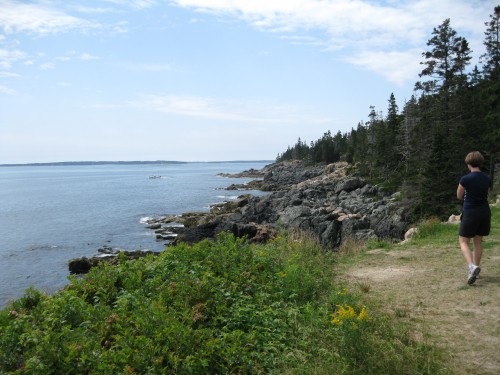Dawn Powell’s 1930 novel Dance Night has me thinking about what it would be like to live in a small town with very little education, very few job opportunities, and only vague ideas about what life is like in other places. The characters in the novel go to the movies regularly, but other than that, the chief source of information they have about the world outside their town comes from traveling salespeople and a dancing master, and the reach of these people is very small. The people who travel the farthest and would therefore have the most information are also the book’s most despicable characters. So everyone else is left with vague dreams and a strong pull to stay right where they are, doing the things their parents did.
Dance Night tells the story of Morry Abbott, a young man who is trying to figure out what he wants to make of his life. He lives with his mother behind the millinery shop she owns where he feels increasingly uncomfortable with the overwhelming femininity of the place. He is trying to find his way into the masculine worlds of the factory and the bar, but his youth and inexperience leave him uncertain and embarrassed. The novel also tells the story of Jen, a 14-year-old who has been abandoned by her mother and taken in by a local family. She feels isolated and alone and misses her younger sister, left behind in an orphanage. She turns to Morry for some companionship, and he is drawn to her, attracted by her hero-worship, but also repelled by her obvious neediness.
What has stayed with me about the book is all the unhappiness and the longing and the misunderstandings that haunt just about every character. Morry doesn’t know what to make of the young women who surround him who make fun of him but also, very confusingly, flirt with him. Morry’s mother is married to a man who is hardly ever home, but who makes her life miserable when he is. She is also desperately in love with the dancing master, who is hardly aware of her presence. The mother’s friend is having an affair. Her assistant torments Morry but also wants to be seen with him. The most important man about town, the one with all the money and property, moves through a series of superficial relationships. No one, it seems, is content, and nobody has much of an idea of what to do about it.
The townspeople do have one outlet — their weekly dance night, which begins with a dancing lesson, followed by the dance itself. Everyone, from old to young, looks forward to these evenings as a time to bring some lightness into their lives, but enjoyable as they are, they are also scenes of sexual competition and jealousy.
And there is also the problem of work. Morry gets a job in the factory and feels proud of himself for a while, but before too long he sees how builders are developing the town, has his own ideas of what kind of houses the town needs, and joins forces with a local architect to try to make his dream houses a reality. He becomes a big man about town himself, making plans and talking them up to the townspeople, shuttling about from person to person trying to make things happen. All this is immensely satisfying for a while, but it’s also precarious and uncertain, and for all Morry knows, it could collapse on him.
Morry senses that his world is changing and that there are opportunities out there — opportunities that could transform his life, if only he could get a proper hold on them. It’s a place where hard work and industry and vision can take him places, but he just can’t quite seem to make things work for him. His friend Jen is also full of dreams; she wants to sing and dance on stage and to live a busy and exciting life in some big city. But the problem, again, is how to make it happen. How can these people escape?
The picture Powell paints of a small town in changing and uncertain times is a grim one, but the portrait seems so real and the characters are so compelling that the book is a fascinating read. It makes me very glad I’m fortunate enough to live in an entirely place and time. Of course, we have our own uncertain times to deal with, but I think for a lot of people, it’s become easier to imagine a way out of claustrophic small towns.

 I finished Chandra Prasad’s On Borrowed Wings nearly a month ago, and so the details are beginning to get vague, but I did want to write at least a few words about the book before putting it away. I picked it up in the bookstore because I was in the mood for something easy and fun and comforting, and I remembered the title from Danielle’s very positive
I finished Chandra Prasad’s On Borrowed Wings nearly a month ago, and so the details are beginning to get vague, but I did want to write at least a few words about the book before putting it away. I picked it up in the bookstore because I was in the mood for something easy and fun and comforting, and I remembered the title from Danielle’s very positive 






